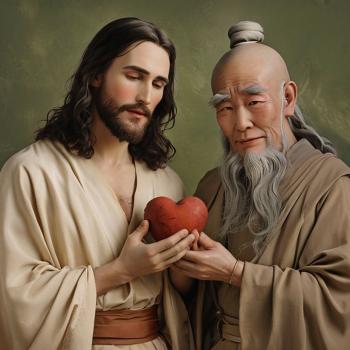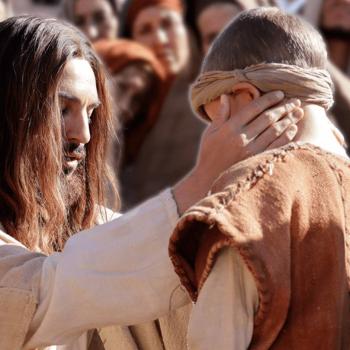In The Independent, Kate Youde tallied up ways the Potter epic has had an impact on Britain, some of them obvious—the British film industry has benefited from the great success of the films, and the publishing industry from the books—some of them less so, at least to us. Fans come to the UK from all over the world, for example, to see film locations like King's Cross Station in London, or the Great Hall at Christ Church, Oxford, the model for the dining hall at Hogwarts, while the depiction of a British boarding school—in the books, Harry's Hogwarts School of Witchcraft and Wizardry—has given good P.R. to a struggling British industry:
Richard Harman, headmaster of Uppingham School in Rutland, said the image the films presented of boarding schools—the "sense of community, activity and excitement"—was helpful. Shots of children dining together, their friendships and the "opportunities for excitement and learning" were positive, he added.
Boarding schools are alien to many Americans, as are ministers and cabinets (about which more next week), villages, parish cemeteries, and train travel. All of these make their appearances in the books and films, but these are stories that are also quite British in their form and themes. Dickens, for example, to whom Rowling is often compared, loved to write about child heroes, particularly orphans, who find a home and a place to be and people who love them. It's not the Horatio Alger story of an orphan who through hard work and application makes himself rich. Unlike great American novels (and films, and videogames, and so on), the Potter books don't feature a single dominant hero who wins through force or individual achievement. While the books all bear Harry's name, and he is quite a good Quidditch player, he's neither the best student nor the most powerful sorcerer. If he were left to his own devices like most American heroes, there would never have been a second book!
Instead of focusing on the dominant individual, British novels often examine how individuals fit into society—and how society divides itself. Americans like to believe we are a classless society with endless possibility for mobility (statistics do not bear this out), but in England, class is still on the radar. Where people went to preparatory school, or college; how they speak, even (note in the first Potter story how little lord Malfoy talks about "the right sort of person" and the Malfoys and Weasleys are constantly contrasted because of their diametrically-opposed amounts of money and style). The question in a British story often is where does one fit in, and how does one's community aid or detract from one's possibilities?
Here is where a very British story can provide a vital corrective for many Americans, who believe in rugged individualism at least as much as they believe in the God of Abraham and Sarah. As I argued in my book on the Potter epic, One Fine Potion, community is one of the central themes Rowling sketches. She builds a world in which people of all sorts are called to work together. The vision underlying Hogwarts School, (although like most visions, rarely lived up to in its entirety) was that four very different magicians would set up houses around their dominant qualities and together, the students of those houses would study together, rub against each other-and maybe rub off on each other.
To hear Rowling talk about Hogwarts in practice—or to witness best friends Harry, Ron, and Hermione in action—is to hear the Apostle Paul discussing the body of Christ, the necessity of difference, the contributions of all the members. The community forms us as individuals, which we should know but usually forget, and this very Christian message underlies these very British novels and films.
Rowling might be satisfied at this. She has identified herself repeatedly as a member of the Church of Scotland, and told the media when Harry Potter and the Deathly Hallows was published in 2007 that the Bible verses quoted in that volume represented the thematic core of the entire series. It's a lovely final irony—in largely post-Christian Britain, the most popular export since tea has its basis in the Bible, in faith, and in the Church.





